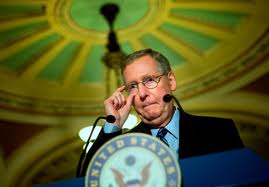The Senate just voted down the Republican proposal to ban earmarks.

The proposed ban was met with profound ambivalence in the transportation community. Some, like Rob Sadowsky, Executive Director of the Bicycle Transportation Alliance, worried that a ban would remove a primary funding mechanism for bike-ped projects.
The day after the election, Sadowsky told BikePortland, “While earmark funding on surface appears to be a poor way of managing a democracy, our projects, particularly trail projects have historically done very well through earmarks.”
Meanwhile, other reformers say earmarks are wasteful because they’re not strategic. Rather than creating a national plan for targeted infrastructure projects that would link into a regional or national network, earmarks fund scattershot programs throughout the country. Those who call them “pork” say the primary strategy behind earmarks is to get members re-elected.
House Republicans have already given up earmarks, and pressure was high after the election to make it official. Even Senate Minority Leader Mitch McConnell was bullied into becoming a reluctant ban supporter.
The proposed ban needed a two-thirds majority to pass the Senate. It barely got one-third: the vote was 39 in favor to 56 against. Only seven Democrats voted for the ban, and only eight Republicans voted against it.
Some political observers noted the irony of Republicans pushing to remove a power lever from the legislative branch and handing it over to the executive branch. After all, if Congress doesn’t allocate the money, Obama-appointed agency officials will.





